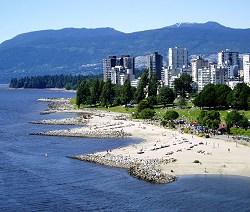|
Publication Date: 2007-11-19
Despite the huge use of the Internet by businesses, there is a gap between the realities of using the Internet and business owner/operator grasp of key concepts surrounding web pages and search engines.
The challenge is that technology and Internet marketing people get immersed into the subject. Geeky stuff about the mechanics of web pages becomes second nature and difficult to explain.
If you are feeling perplexed by Internet terminology as it pertains to finding web sites using Google or Yahoo, there are 5 terms that you should know that will make you look like a genius but won't make you sound like a geek.
These five terms are: Hit, Visitor, Page View, Page Rank and Search Results.
1. Hit. Remove this word from your vocabulary as it pertains to web sites. Hits on a web site are meaningless. If someone is bantering about how many zillion hits he/she got on a web page, they don't know what they are talking about. I found a good definition of hit at http://www.marketingterms.com/dictionary/hit/. Simplified, the site says a hit is a request for a file (e.g. page of writing and images) from the computer dishing up the web page. A request for a Web page counts as a hit, but so does a request for a graphic on a Web page. Since the number of graphics per page can vary considerably, hits mean very little.
2. Visitor is more useful. Every day people visit your site. A program on the computer tracks how many people visit. If you get a figure from someone saying "our web page got 10,000 visitors" your first question should be "over what period of time?" Visitors to a site must be qualified with a time period. Visitor per day, per week, per year, etc. You are likely to hear the term Unique Visitor; this means that, where possible, the web tracking program determines who comes back. Therefore, if I visit a shopping site 5 times in one day, the Unique Visitor count is 1 for that day.
3. Page View is interesting, but is clearly dependent on human behaviour. If you have a page named CoolStuff.htm, your web tracking program can tell you how many times all the visitors to your site displayed it. What they did on that page is another issue.
4. Page Rank is a weird term because it is a Google concept. As far as anyone knows, it is a score out of 10 that based on the links pointing to a website and their "quality." Quality is an internal measurement to Google. Important: Page Rank does not have any bearing on if your web site shows up when you search for it.
5. Search Results are the web pages that come up when you type something into Yahoo, Google, MSN or the other search engines. How high in the list your web site places depends on the words written on your web site. The more vague a word or phrase, the more results come back and the more lost in the pile you are. Important concept: if you imagine someone should find your web site by typing in "blue nozzles," it's very important that the phrase "blue nozzles" appears on your web site often and consistently.
To understand this better, I suggest you try out a Google search. Try going to www.google.ca and type in: "packages". In your mind, pretend you are looking for vacation travel packages. You will see that there are about 74 million results. In the natural results (ones that people didn't pay for) you will notice there are many entries that are irrelevant to travel. To have any web site place well for this phrase is crazy.
Consumers who started with the "packages" search would likely try to narrow it down. The next logical search is "vacation packages" or "holiday packages". This gives you a mere 13.8 million results. Big players like Orbitz appear in the top of the natural listings. The reason they are there is the result of having thousands of relevant pages on their site that talk about vacation packages.
Once a consumer puts in a search that's a little more focused, e.g. "Caribbean vacation packages" the return set is somewhat reasonable in size. In this example, 319,000 results are returned.
If someone comes up to you and says "I can't find you on the Internet," don't panic. This is because the person saying it is silly. Your first urge should be to smack them, but resist this urge because it's usually illegal and doesn't help.
Your response should be, "what phrase or word did you type into the search engine to find my web site?"
Most people won't have an answer for that. When you explain that that search results depend directly on the words contained in the web site, they will think you are some kind of genius.
Robert Ford is owner of Quokka Systems Consulting in Vancouver. His company owns and operates www.TravelInBC.com and other Canadian Travel sites. Robert@quokkasystems.com
Google+ Profile
|

